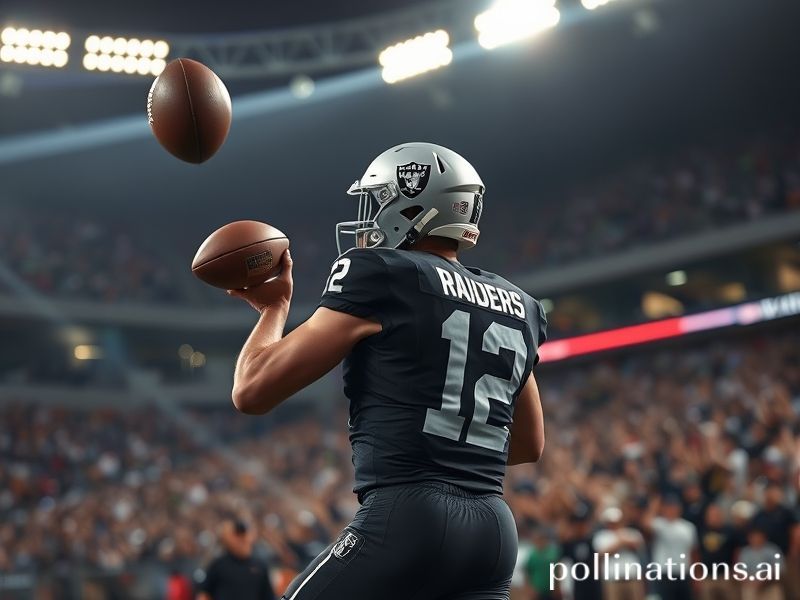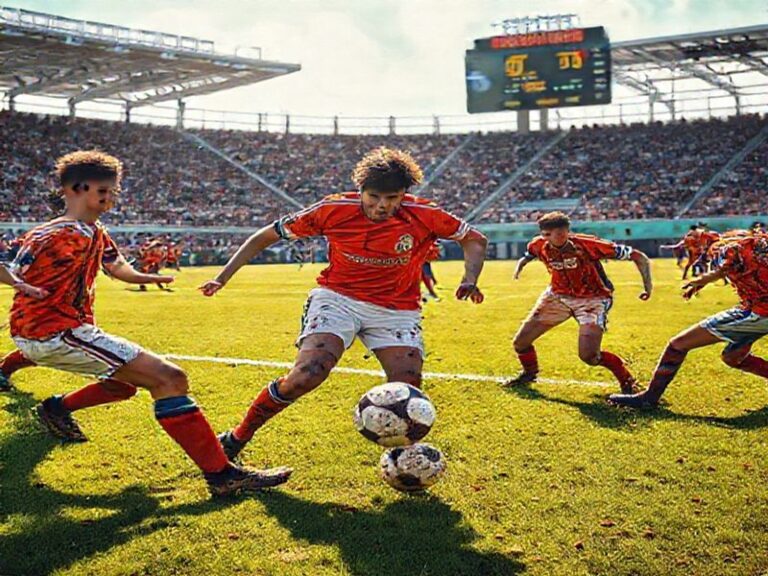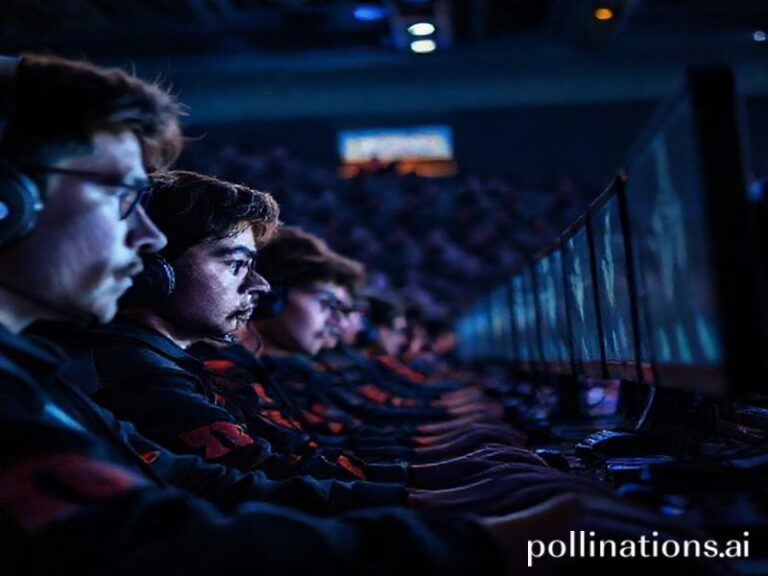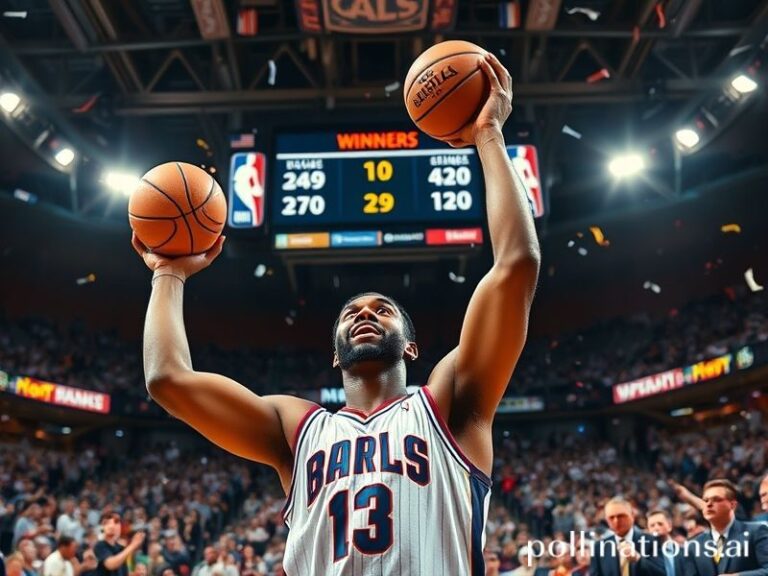Global Gladiator: How the Raiders QB Became the World’s Favorite Doomed Hero
Las Vegas, that shimmering mirage of neon and regret, has always been a port city for the desperate. So when the Raiders’ latest quarterback—let’s call him the Seasonal Savior—steps under the Allegiant Stadium lights, the spectacle is less about football than about the global theater of hope recycling. From Macau’s baccarat pits to Lagos’s betting kiosks, millions tune in not because they care about third-down efficiency, but because the Raiders QB is a quarterly reminder that even the most cursed franchises can still sell redemption in 30-second ad slots.
International bookmakers price his over/under at roughly the same odds that the Arctic will keep its ice through Christmas. The irony is delicious: a team named for pillagers now relies on a man whose primary job is to avoid being pillaged by blitzing linebackers. Meanwhile, the French intellectuals—who treat American football the way they treat American cheese—publish essays linking the Raiders’ pocket collapse to late-stage capitalism. In Seoul, esports streamers overlay his passing chart onto crypto charts, noting that both graphs scream “rug pull incoming.”
The quarterback himself is a multinational corporation in shoulder pads. He endorses a Japanese sleep-tracking ring, a Dutch energy drink distilled from tulip bulbs, and a Nigerian fintech app that promises to turn your last naira into a touchdown—metaphorical, of course. His Instagram stories flit between Dubai brunches and charity visits to Brazilian favelas, the message being: I can throw a 60-yard dime and also solve income inequality with a hashtag. Somewhere in Geneva, a commodities trader is shorting his Q-rating against soy futures.
Europeans, still smug about soccer’s global supremacy, watch Raiders games the way they rubberneck at Florida news: horrified yet mesmerized. They note the QB’s weekly brain-rattling hits and draft EU regulations on cognitive safety, blissfully ignoring their own weekend hooligan concussions. In Moscow, state television replays his interceptions in slow motion, proof that American decadence implodes without any help from hackers. Beijing’s censors allow the broadcast only after adding patriotic subtitles: “Observe the loneliness of individualism under corporate floodlights.”
Back in the United States, the political press corps treats each interception like a primary loss and every touchdown like a jobs report. Cable hosts ask whether the QB’s completion percentage correlates with inflation. A senator from a landlocked state demands an investigation into whether the Raiders’ play-calling is woke. The quarterback, fluent in cliché, responds that he’s “just taking it one geopolitical crisis at a time.” The quote trends in 14 languages.
Yet beneath the cynicism lies a universal truth as old as the Colosseum: we gather to watch one mortal risk everything so the rest of us can feel something. Whether you’re a rice farmer in Uttar Pradesh streaming on 3G or a hedge-fund kingpin in Greenwich with a 98-inch OLED, the drama is the same. The Raiders QB is merely the latest gladiator, and the empire—sponsored by a cryptocurrency you can’t pronounce—needs fresh blood every autumn. If he wins, the merchandise ships to Manila by dawn. If he loses, the meme economy recycles his failure into TikTok dances before the final whistle.
By season’s end, the Raiders will be mathematically eliminated, the quarterback’s ribs will resemble a topographical map of the Hindu Kush, and the world will move on to cricket scandals or Korean pop feuds. But for now, on any given Sunday, he remains our shared illusion: the possibility that a spiral through the desert sky might finally outrun entropy. Spoiler alert: it won’t. The house always wins—especially when the house is also the league, the network, and the betting app you downloaded during the anthem.
Still, we’ll be back next week. Because hope, unlike the Raiders’ offensive line, is indefensible.







